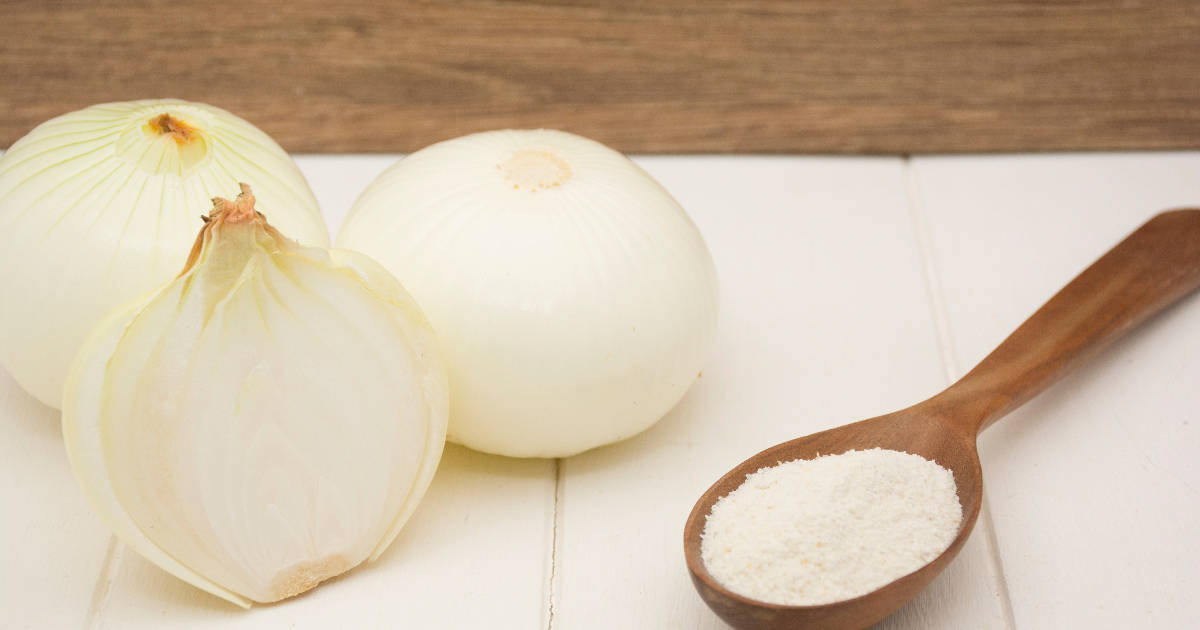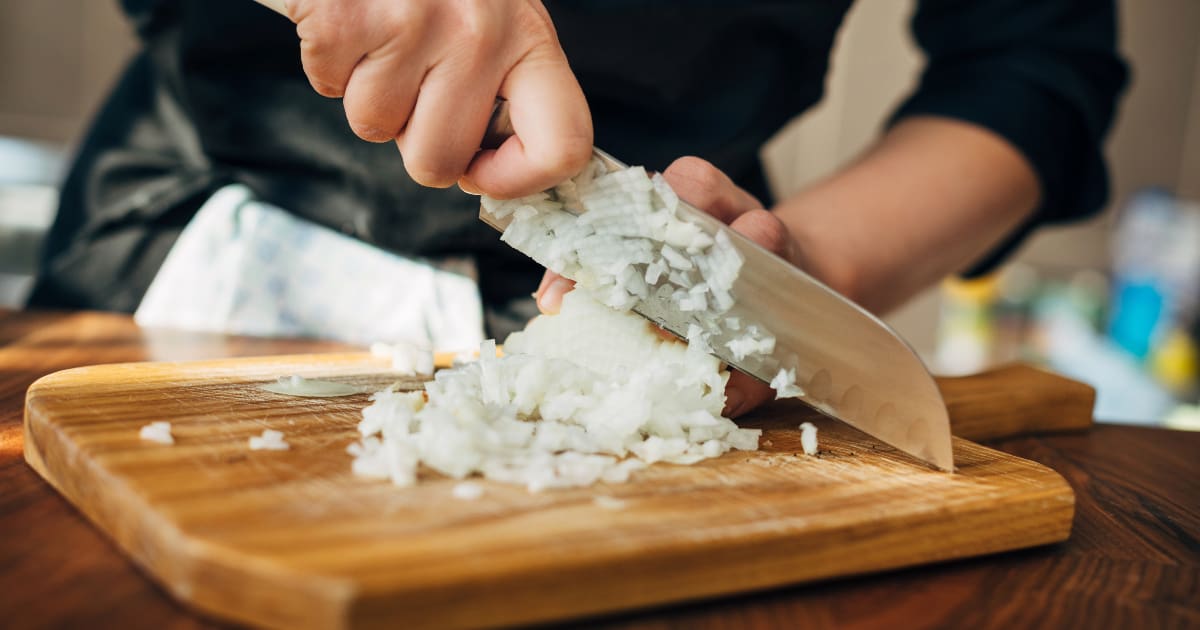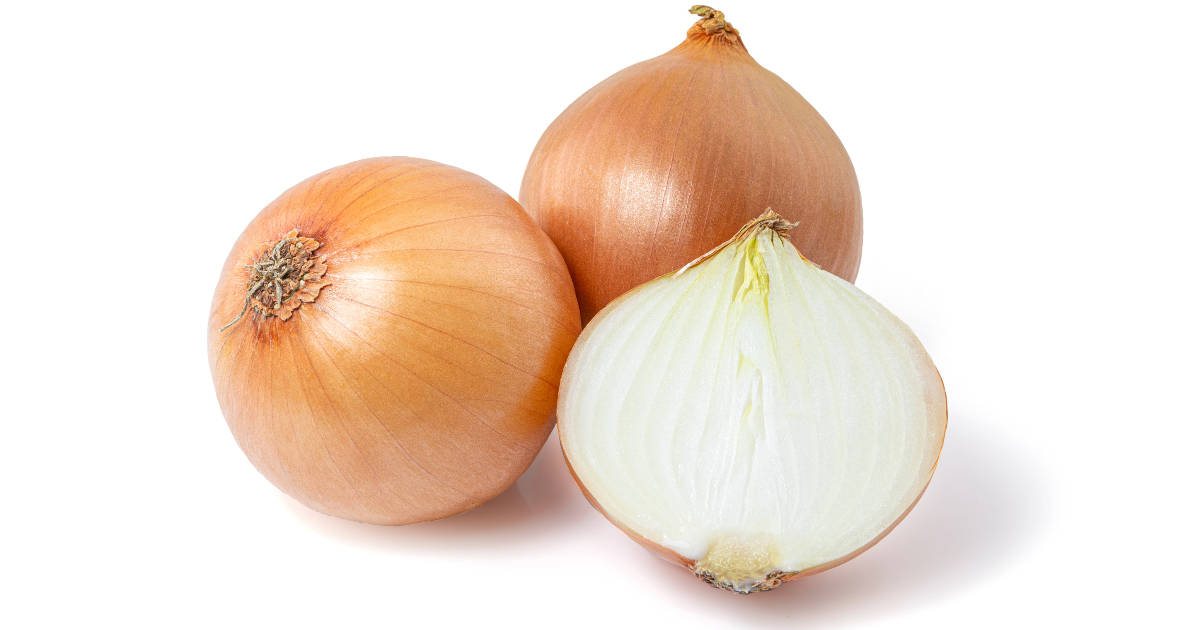Onions are a versatile vegetable used in many savory dishes. You can use them raw, cooked, or dried and ground into a powder.

Both raw onions and onion powder add great flavor to recipes. But they differ in some important ways.
If you're trying to decide whether to use fresh onions or onion powder, consider the differences in flavor, convenience, and nutrition.
Flavor Differences Between Onion Powder and Raw Onions
Onion powder has an concentrated, intense onion flavor that permeates throughout a dish. The drying process concentrates the sulfur compounds that give onions their pungent taste.
A little onion powder goes a long way. Use too much and the flavor can be overpowering. Start with a small amount and add more to taste.
Raw onions have a more complex, mellow flavor when used fresh. Their crisp texture and layered flavor notes balance and enhance other ingredients.
Onions become sweeter and more caramelized when cooked. This brings out their natural sweetness.
If a recipe calls for onion powder, you can't simply substitute fresh onions. The flavor will be quite different. But in some cases, you may be able to use part onion powder and part fresh onion. This gives you some of the concentrated onion punch along with fresh onion flavor.
Convenience Factors of Onion Powder Versus Onions

One of the biggest advantages of onion powder is convenience. Keeping some on hand means you can add onion flavor to dishes anytime without having to prep fresh onions.
Chopping onions takes time. First you have to peel off the papery outer layers. Then chopping onions makes you cry as the sulfur compounds are released into the air. Having pre-minced dried onion eliminates this prep work.
Onion powder has an almost indefinite shelf life if stored properly in an airtight container. Onions go bad after 1-2 weeks. You have to plan ahead to make sure you have fresh onions when you need them.
With onion powder, you can quickly add a teaspoon or two to dressings, dips, soups, breading, and more. Just shake it out of the container. No need to dirty a cutting board and knife to chop onions. Cleanup is easier.
When backpacking or camping, onion powder is ideal. It takes up little space and weighs much less than fresh onions. Plus there's no worry about onions getting damaged, moldy, or smelly after a few days.
Overall, onion powder offers much more convenience compared to raw onions. Just be sure to store it properly, away from humidity.
Nutritional Differences Between Onion Powder and Raw Onions
Onions contain vitamin C, vitamin B6, and potassium. They also contain antioxidants, including flavonoids and sulfides.
When onions are dried to create onion powder, some nutrients are lost, especially vitamin C which is sensitive to heat and air exposure. However, onion powder retains most of the nutrients found in fresh onions.
Since the onion is concentrated when dried, onion powder contains higher levels of certain compounds per teaspoon compared to the same volume of raw onion. Specifically, onion powder has more flavonoids, sulfides, and antioxidants.
The downside is that onion powder is very high in sodium, providing nearly 20% of the recommended daily intake in just 1 teaspoon. People on low-sodium diets should use onion powder sparingly.
Overall, raw onions are more nutritious and healthier thanks to their vitamin and mineral content. But onion powder still provides antioxidants and sulfur compounds that offer health benefits.
How To Substitute Onion Powder for Fresh Onion

In many recipes, onion flavor is essential. If you're out of fresh onions, onion powder can substitute in a pinch. Here are some tips:
- Use 1/4 to 1/2 teaspoon onion powder per medium onion called for in the recipe. Add it slowly, tasting as you go until you get the right onion flavor.
- For maximum flavor, bloom the onion powder in oil or butter briefly before adding other ingredients. This mellows and enhances the taste.
- Combine onion powder with fresh garlic or herbs like chives or parsley. The extra flavors help balance out the strong concentrated taste.
- In dishes with a lot of liquid like soups, stews or chili, use the full amount of onion powder suggested. The flavor will spread out more.
- For drier items like breading, dips, dressings, or rubs, use less onion powder initially. You can always add more but you can't take it away.
- Onion powder works well in meatloaf, burgers, meatballs and other minced or blended meat dishes. Mix some right into the meat mixture.
With a bit of experimenting, you can use onion powder measured carefully to successfully substitute for fresh onion in most recipes. Keep tasting and adjust amounts as needed.
Storing Onion Powder Properly
To get the longest shelf life and best flavor from onion powder, store it properly. Here are some tips:
- Keep onion powder in an airtight container in a cool, dark place.Exposure to light, heat, and humidity will cause faster deterioration.
- Glass jars or ceramic containers work best for storage. Avoid plastic which can impart flavors.
- Write the purchase or open date on the container to track freshness.
- If storing for more than 6 months, keep onion powder in the freezer. This prevents moisture absorption.
- Don't keep onion powder near the stove. The heat accelerates flavor loss.
- Use a clean, dry spoon to scoop out onion powder. Exposure to air speeds staling.
- Buy onion powder from a store with high product turnover for maximum freshness.
- Smell onion powder before use. Rancid onion powder will smell unpleasant and bitter. Discard if this occurs.
Properly stored in an airtight container, onion powder will stay fresh for 1-2 years. With extra care, you can keep the flavor for even longer.
Disadvantages of Using Onion Powder
While onion powder offers convenience, there are some downsides to keep in mind:
- Onion powder lacks texture and crunch provided by fresh raw onion. Dishes may be less complex.
- Measuring inaccuracies can lead to off tastes if too much or little onion powder is added. It takes practice.
- Cost per ounce is higher compared to purchasing whole onions. You pay for the convenience.
- Can be perceived as less "natural" versus fresh produce. Some prefer minimal processed foods.
- Contains significantly more sodium than raw onions which don't have added salt as a preservative.
- Flavors degrade over time. Onion powder more than 2 years old likely tastes flat and bitter.
- May cause allergic reactions in those sensitive to onions. The concentrated powder is more likely to trigger symptoms.
While not a perfect substitute, onion powder can provide big onion flavor in recipes when you don't have fresh onions on hand. With care in measuring amounts and storage, it can enhance many savory dishes.
FAQ
What are the main flavor differences between onion powder and raw onions?
Onion powder has an extremely concentrated, pungent flavor that can be overpowering if too much is used. Raw onions have a more layered, mellow taste when used fresh. Caramelizing onions through cooking brings out their natural sweetness.
Does onion powder go bad?
Yes, onion powder can go bad over time. Properly stored in an airtight container in a cool, dark place, onion powder will stay fresh for 1-2 years. Signs of spoilage include an unpleasant bitter smell and lack of pungency. Discard onion powder if it smells rancid or tastes flat.
Can you use onion powder to replace onions in salsa?
It's best to use fresh onions in salsa for their crisp texture. But you can use a combination of onion powder plus chopped fresh onion. Add just 1/4 tsp onion powder per medium onion. Combine it with finely diced onion for balance.
What foods bring out the flavor in onion powder?
Blooming onion powder briefly in butter or oil helps mellow, enhance, and distribute the flavor. Combining onion powder with umami ingredients like soy sauce or tomato also boosts its taste. Acidic foods like lemon juice and vinegar help moderate the pungency of onion powder.
Does dehydrating onions turn them into onion powder?
No, dehydrated onion flakes are different than onion powder. To make onion powder, dehydrated onions are further processed by being ground into a fine powder. Onion flakes have more texture, while onion powder dissolves into dishes.
Conclusion
Whether you reach for a raw onion or onion powder often comes down to personal preference and what's on hand.
Understanding the differences allows you to use both types of onion to their full advantage. With the proper techniques, onion powder can deliver bold onion taste with less prep work compared to chopping fresh onions.
Keep your pantry stocked with onion powder so you can easily enhance dishes any time.

